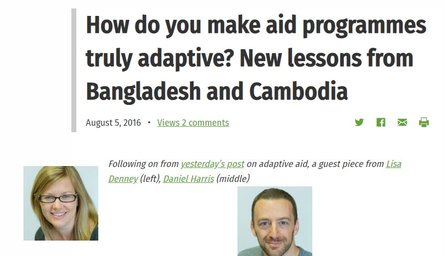
A swelling chorus of the development community has been advocating for more flexible and adaptive programming that can respond to the twists and turns of political reform processes. They argue that in order to achieve better aid outcomes, we need to do development differently. As part of this agenda, ODI and The Asia Foundation, with the assistance of the Australian Department of Foreign Affairs and Trade, tracked and analysed three programmes in Bangladesh, Cambodia, and Mongolia. These programmes explicitly sought to work politically in practice, using a relatively small amount of money, a relatively short timeframe, and a focus on tangible changes. We followed attempts to achieve environmental compliance and increase exports in the leather sector in Bangladesh, and to improve solid waste management in Cambodia and Mongolia; issues identified for their potential to make important contributions (economic, health, environmental, etc.) to the wellbeing of citizens. Two of our case studies were released this month, telling the story of how the reforms unfolded and shifted strategy to better leverage the incentives of influential stakeholders, as well as the mechanics of how the Foundation supported adaptive ways of working.